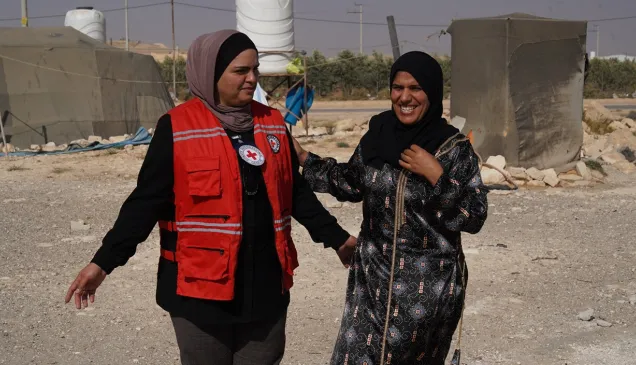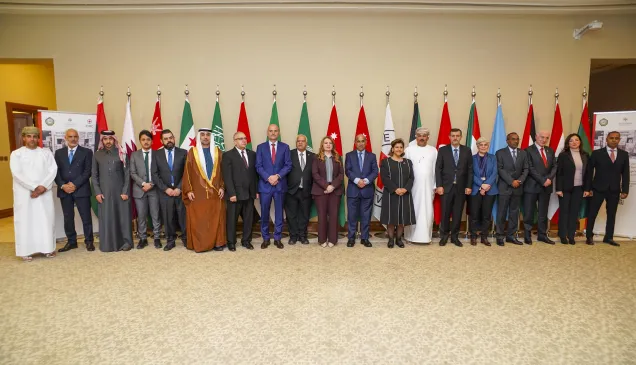Why do we work with military forces in Jordan?

When did the ICRC start working with the Jordanian Armed Forces?
The ICRC has been present in Jordan since 1967 and has established a long collaboration with the Jordanian Armed Forces-Arab Army (JAF), by supporting its training programmes on IHL and providing it with didactic materials to broaden the knowledge of participants on the law and the obligation of military forces wen engaged in conflict.
A key aspect of this collaboration covers the role the ICRC plays in strengthening training at the Peace Operations Training Centre (PoTC), the Junior and Senior Divisions of the Command and Staff college and at the Royal Jordanian National Defence College.
What is the scope of our work with armed forces and other entities on IHL?
The International Committee of the Red Cross (ICRC) is mandated by the Geneva Conventions (also known as International Humanitarian Law-IHL- or the Laws of Armed Conflict-LOAC) to assist States in spreading knowledge of the law far and wide. The institution therefore collaborates with state entities in fulfilling this objective.
In practical terms, this collaboration involves engagements with the National IHL Commission in each country, armed and security forces, academia and civil society. In contexts undergoing armed conflict, the ICRC also engages with parties to the conflict to explain the law and their obligations towards protected persons.

Photo shows Sarah Avrillaud (Left in the picture) giving her presentation at the College. Credit: JAF
What did we recently do with Jordanian Armed Forces?
An example of one of our recent activities in Jordan is our participation in the 19th Course of the Royal Jordanian National Defense College (RJNDC) where Sarah Avrillaud, Head of the ICRC delegation in Jordan, gave a presentation in the month of January 2022 to 40 officers from various countries.
During the presentation, she identified one of the important tasks the ICRC performs, which gives expression to the Conventions, (also known as International Humanitarian Law or the Laws of Armed Conflict), by highlighting the protection work of the organization. In this wise, she explained that the ICRC is providing support for families of the missing by helping to clarify the fate of their missing relatives as well as providing these families with economic, legal and psychosocial support. Some Syrian families in Jordan whose loved ones went missing as a result of the conflict in Syria are being addressed through the program.
Why do we work with military forces in Jordan?
During her presentation, Sarah Avrilluad said that Jordan is one of the major contributors to UN Peacekeeping operations where in recent time, the protection of civilians has continued to be a major component of the mandates the UN Security Council gives to these forces. The contribution of Jordan to such forces is also very important, consistent with the provision of the Fourth Geneva Convention which guarantees protection of this category of persons during armed conflict.
She concluded her speech stressing that the ICRC upholds "… several principles, the most important of which are humanity, impartiality, neutrality, independence, voluntary service, and global unity.” She further affirmed that “the ICRC is neutral, independent and impartial and has a purely humanitarian mission to protect the lives and dignity of those affected by armed conflicts and other situations of violence and provide them with assistance.”



